
A few hours of life under the threat of death: how the stabilization center near Bakhmut works
In an exclusive report by Donbas Frontliner for Espreso TV, we delve into the daily life of the stabilization center in the Bakhmut direction. This center serves as the initial point of medical care for the wounded, who arrive in successive waves. Subsequently, they are transferred for extended treatment in other cities
“Send someone! Help me unload!" The tone of the calls from outside indicates the arrival of an individual in critical condition. They are literally running down the corridor. His heart has stopped. His face is pale, and his nose is bleeding.
"How long has he been in this condition?" the doctor asks on the run. "Five minutes?”
“No! I've only seen him for five minutes!”
“I see. So, at least 5 minutes…”
Heart massage. The wounded man's comrades are waiting in the corridor. Sweat drips down their faces, and their eyes show mute despair at the inability to help. "F*ck... f*ck... f*ck....," one of them repeats powerlessly, like a mantra.
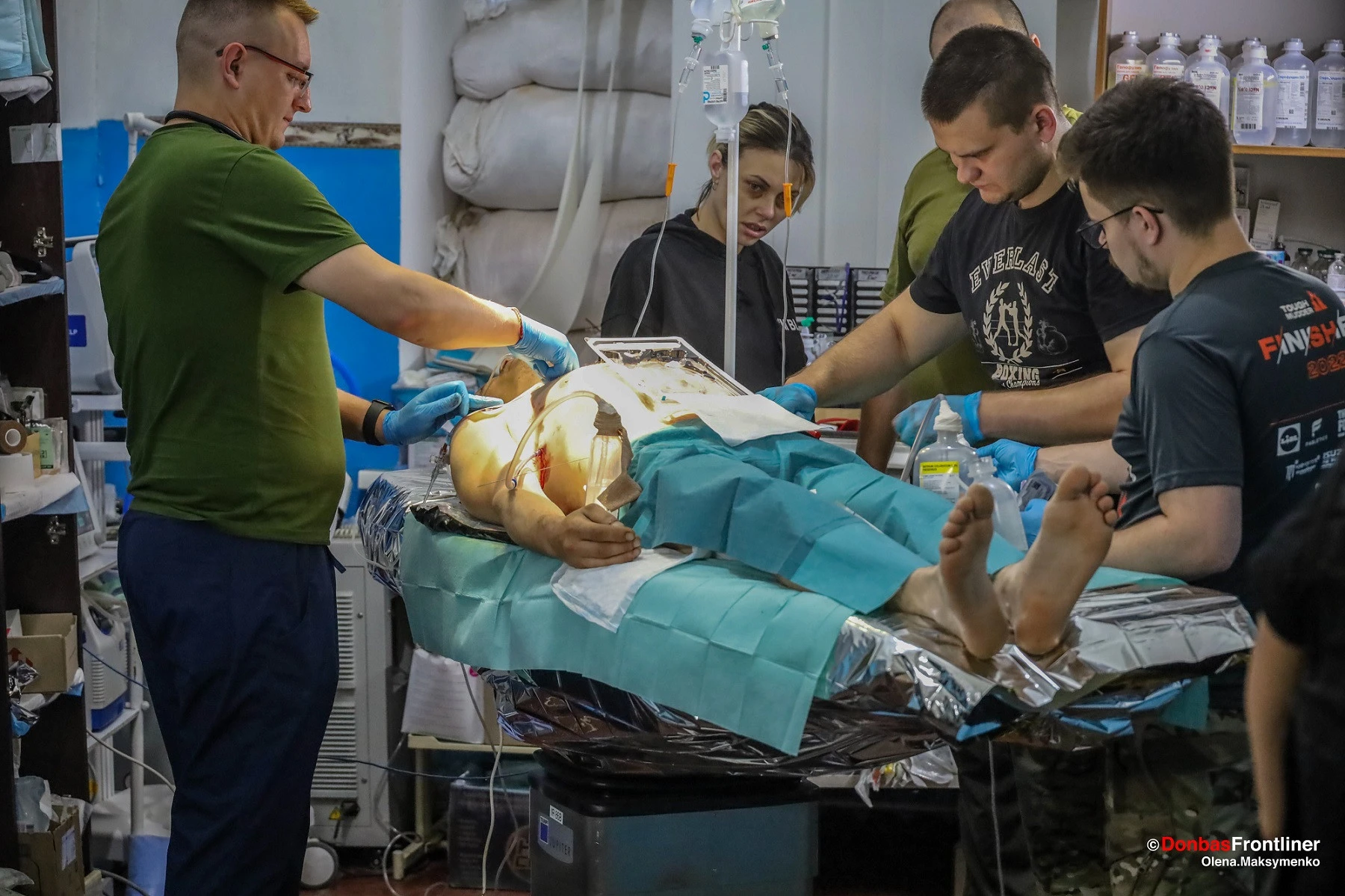
This is how everyday life at the stabilization point in the Bakhmut direction looks like. The wounded, soldiers from various brigades operating in the area, arrive in successive waves. Mere moments ago, the wards for treating the "300th" were vacant. Doctors were taking a smoke break, making coffee with cake. Suddenly, the calm is shattered as several ambulances from different brigades converge simultaneously. Among them are two "heavy" and two "light" cases.
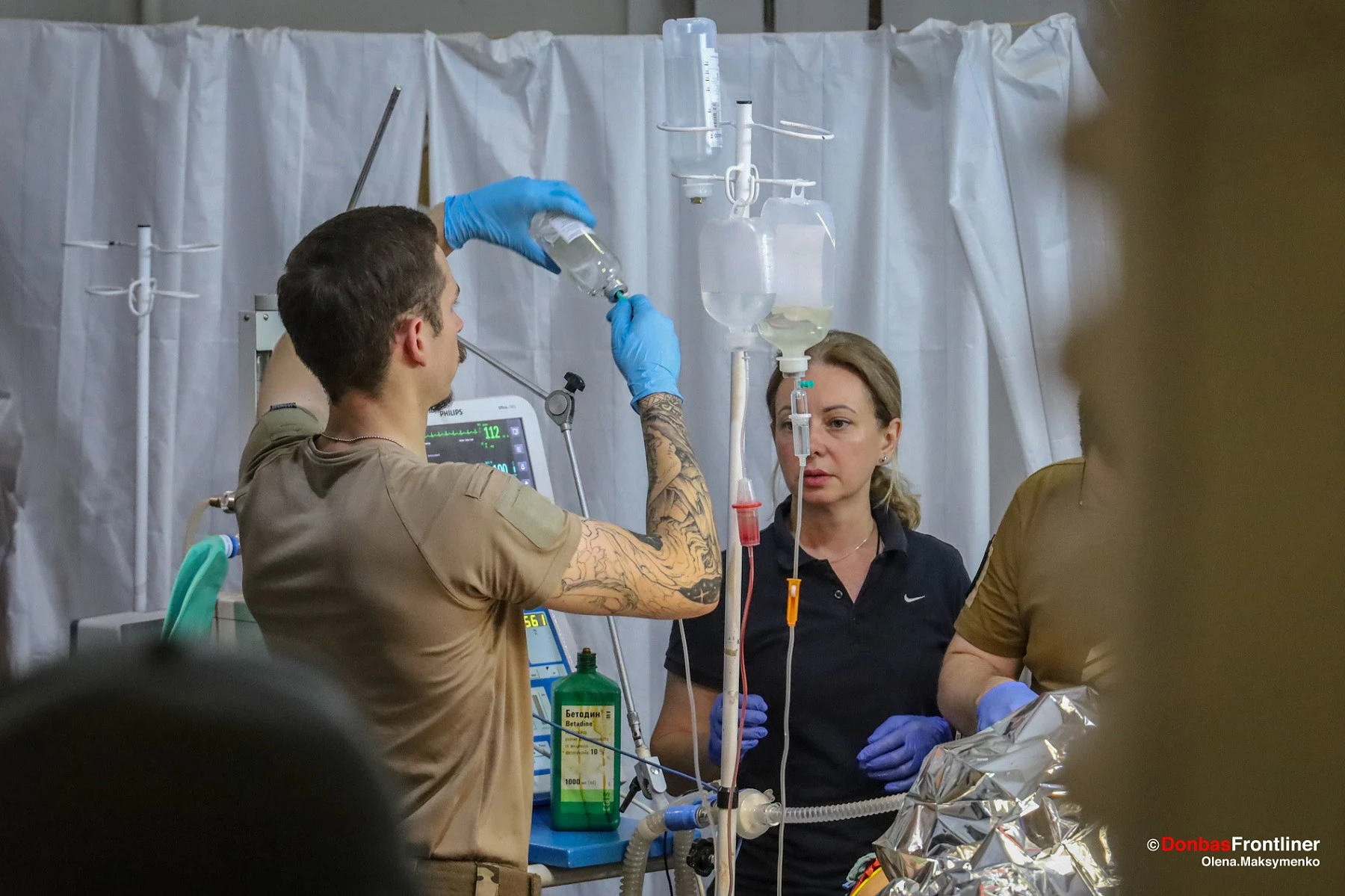
The first one, the heavy one, is begging for water with his last strength. However, he is not allowed to drink water, because there is a risk of internal bleeding. The medical team has been working on his stabilization for about an hour. They put an ultraviolet light lamp near him, because with significant blood loss, the human body stops retaining heat, and there is a risk of hypothermia.
Vadym, an anesthesiologist, details the injuries, saying, "He has an open head injury and is experiencing hemorrhagic shock of a 2nd or 3rd degree. It's challenging to determine the exact extent of blood loss. However, based on the patient's pulse, vascular status, and overall dynamics, we assessed it as either 2nd or 3rd degree shock. We administered plasma and blood, which resulted in a rapid stabilization of his hemodynamics."
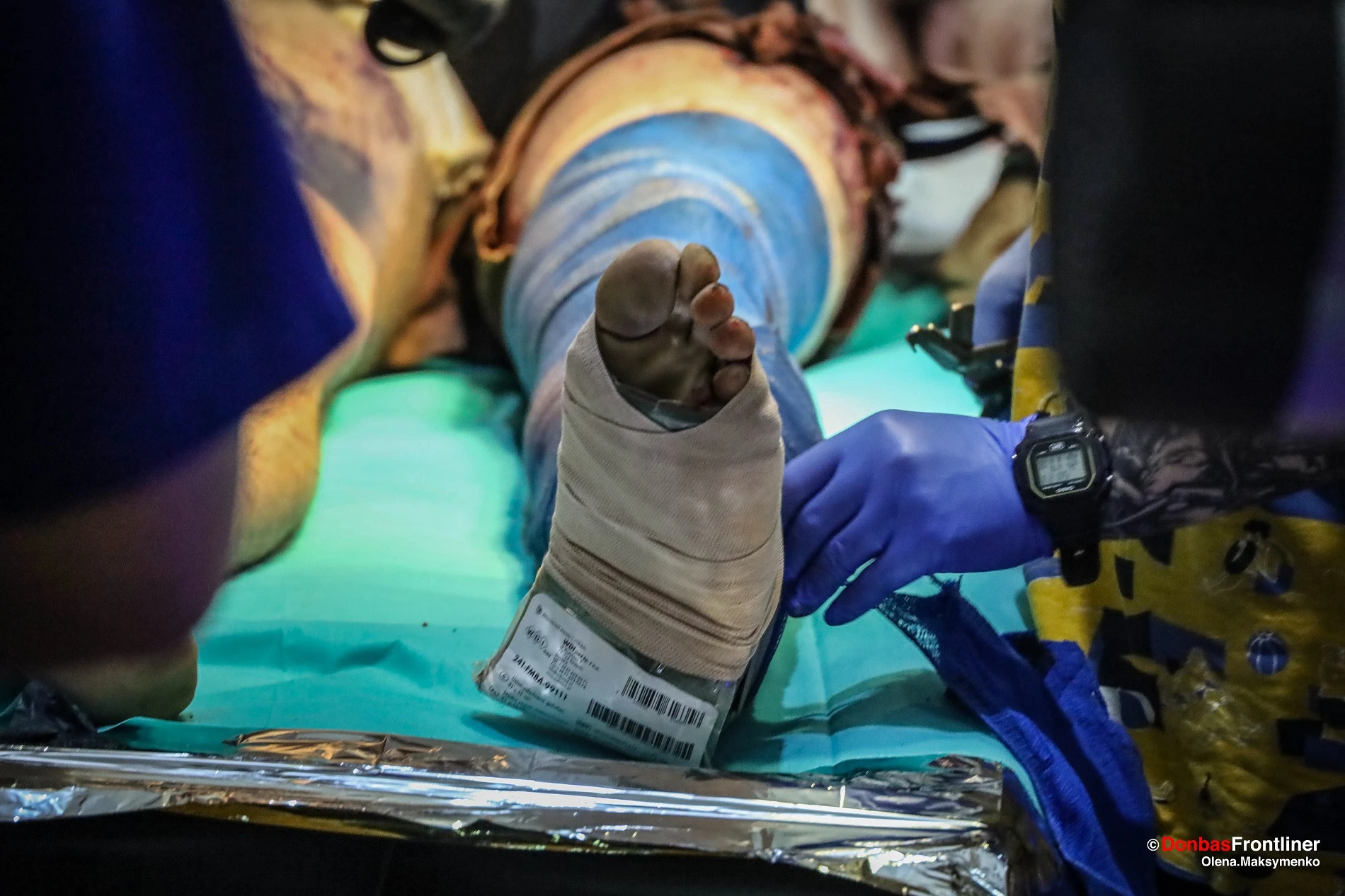
His colleague, surgeon Volodymyr, further explains that this injury was caused by a mine explosive device. He states, "The injuries span from head to toe, including crushed wounds, gunshot wounds, pneumothorax, and the arm is torn, fractured, with possible dislocation of the main vessels. His consciousness was slightly diminished, but he was conscious upon admission."
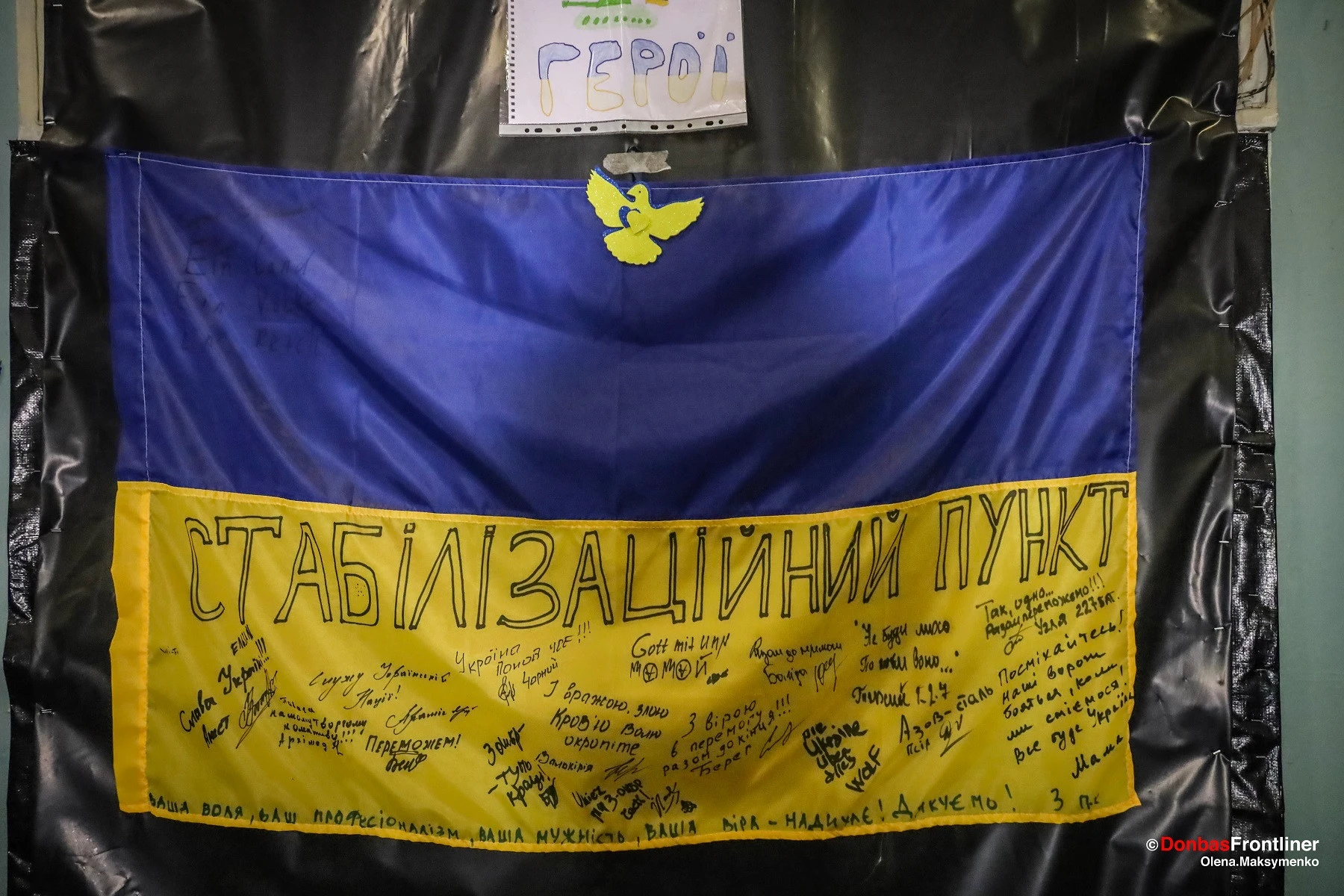
The stabilization center serves as the initial medical care point for the wounded. Following this, they are transferred to hospitals in various cities within the Donetsk region, and subsequently to larger medical facilities in cities like Dnipro, Kyiv, Kharkiv, Vinnytsia, and Lviv for extended treatment. The center sees a daily influx of around a hundred wounded individuals, and at times, even more. "Seriously wounded" patients often require blood transfusions, so it is important to keep stocks. Despite it being a Sunday, there are no breaks or day-offs for the medical staff.
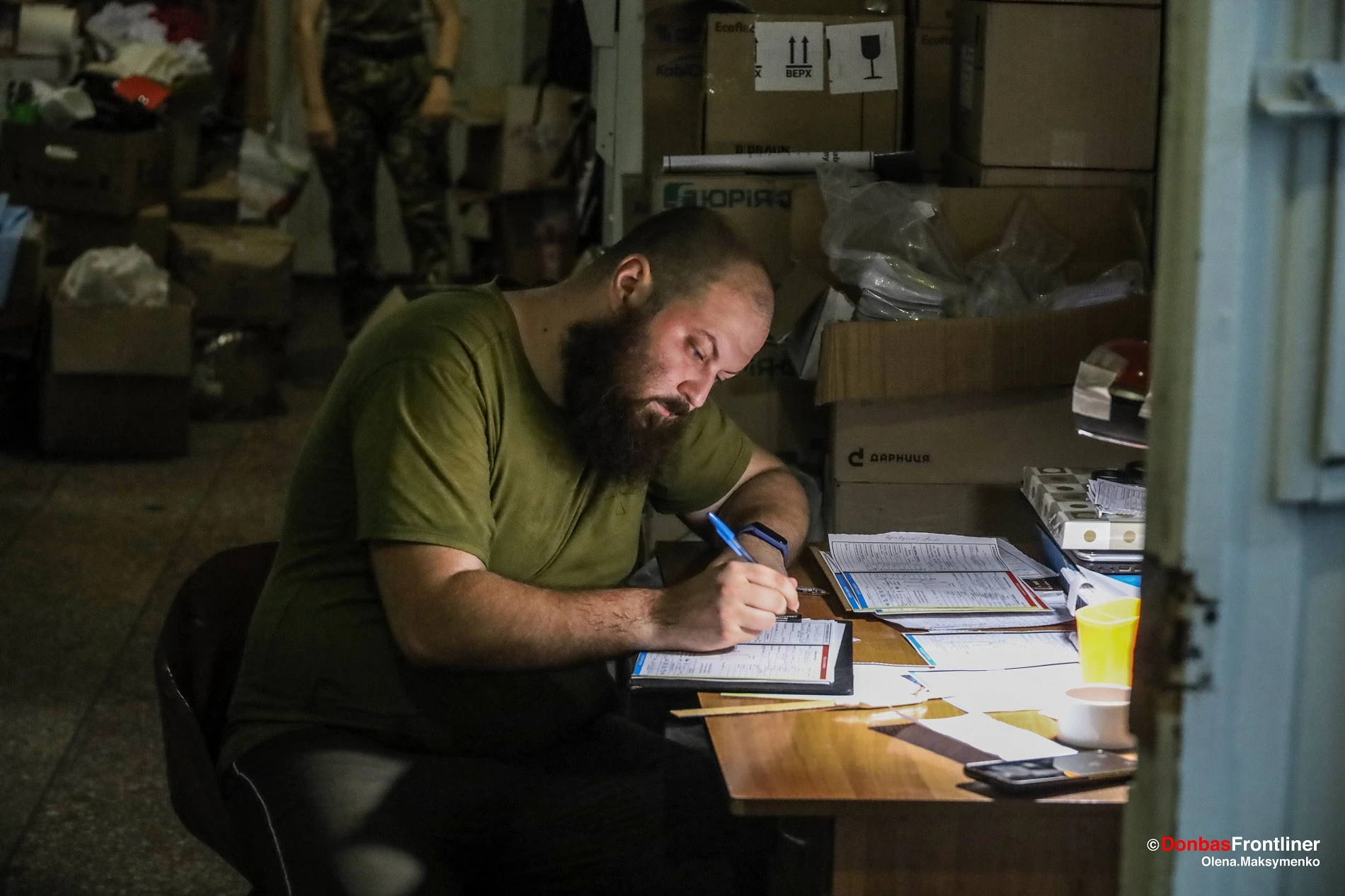
Korsar, a vascular surgeon from the 3rd Brigade, notes that it takes just 27 seconds from waking up to being fully prepared to work with a wounded man.
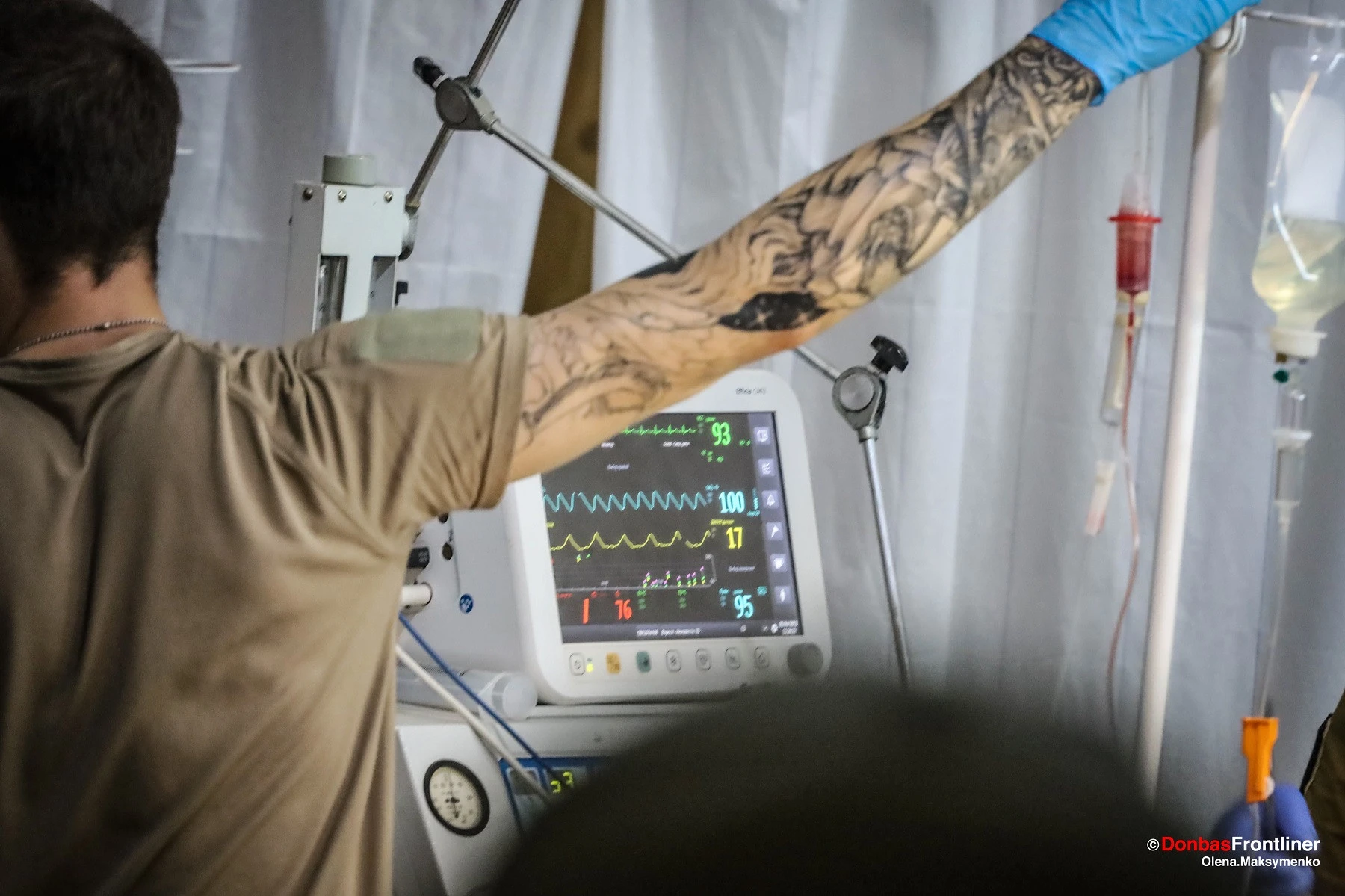
... "The "engine" of the “heavy case” manages to start. The cardiogram curve jumps on the monitor.
After the wave of wounded subsides, the medics quickly and thoroughly clean the rooms, make beds, and make everything ready for the next patients.
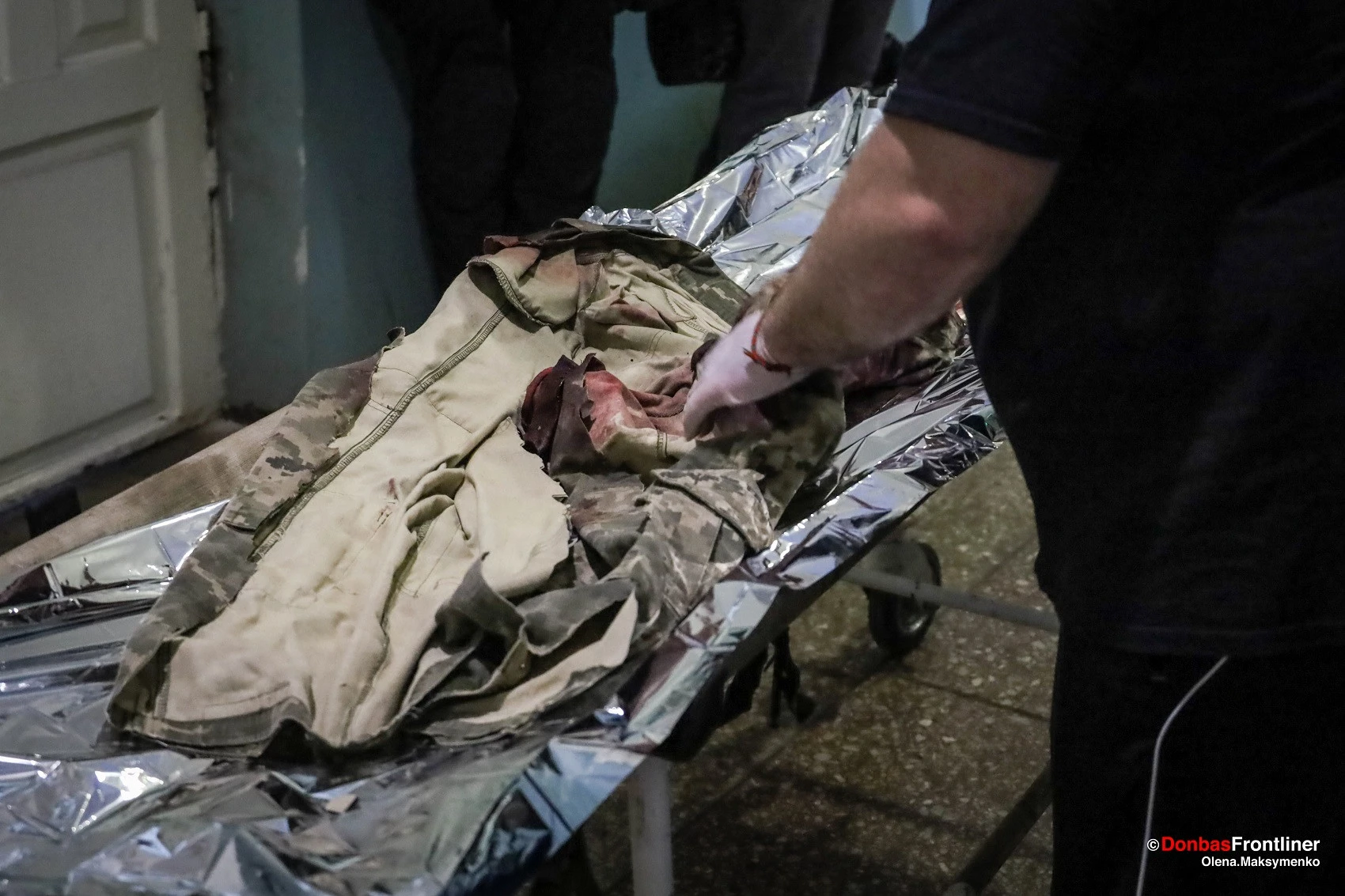
The baskets are filled with cut clothes, bloody thermal blankets and disposable sheets.
Ten minutes later, the next wave arrives.
The author of the text and photos: Olena Maksymenko
The material was created in partnership with Espreso and Donbas Frontliner.
Donbas Frontliner is an independent media outlet that covers the war waged by Russia against Ukraine. It focuses on events on the front line, recently liberated territories, and in the rear; documenting evidence and eyewitness accounts of Russia's war crimes. In 2022, the team won the Free Media Award 2022; the founder of the media outlet, Andriy Dubchak, was awarded the Georgiy Gongadze Prize in 2023. Donbas Frontliner’s social media.
- News














































